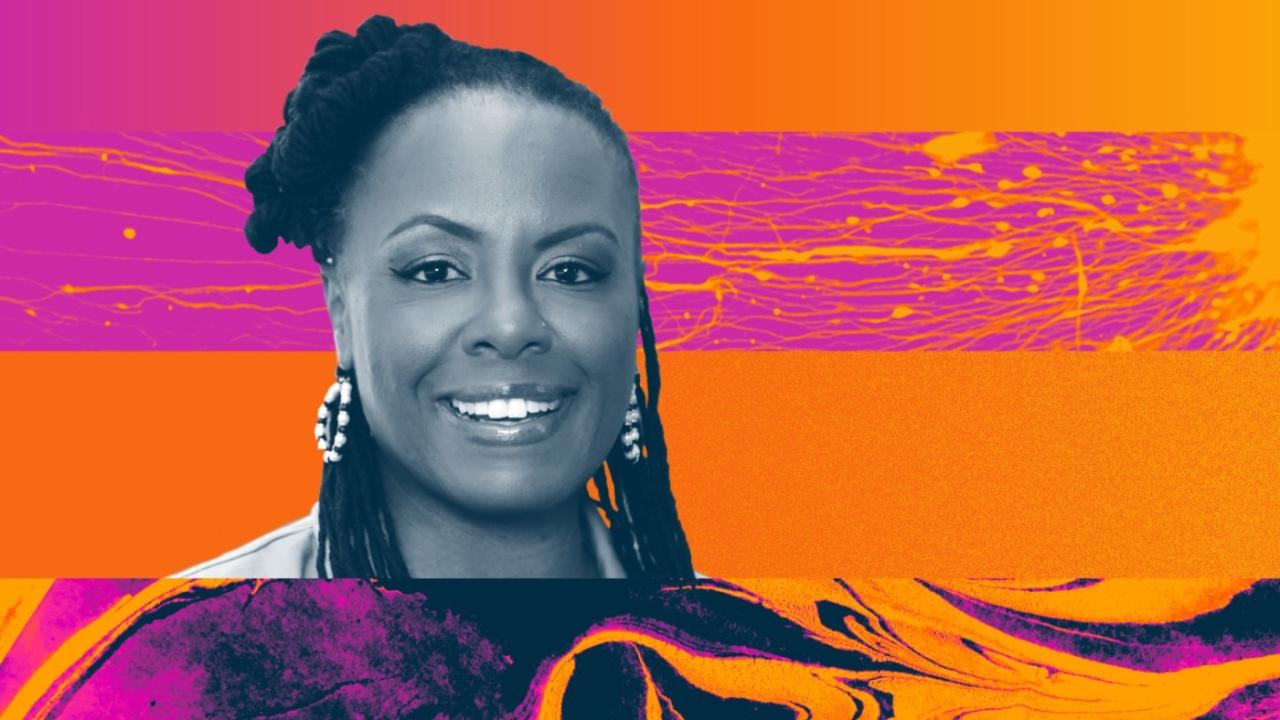
5 Questions with Graduate Diversity Officer Devin Horton
To celebrate Pride Month, Gladstone is featuring panelists from Out in Science by asking them to answer a few questions.
Devin L. Horton, PhD (she/her), is the Graduate Diversity Officer for Science, Technology, Engineering, and Mathematics (STEM) at UC Davis. A Los Angeles native, Horton was the first in her family to attend college and the only one to earn a PhD. It’s her experience as a first-generation, socioeconomically disadvantaged student from a historically oppressed population that fuels her passion for providing effective and comprehensive student support.
What is the current focus of your work or research?
I work as a diversity officer for graduate students and postdocs in STEM disciplines. I see my role, predominantly, as an advocate for these populations. Specifically, I work with graduate programs, campus leadership, and other campus stakeholders to develop and enhance programs and policies that promote the successful matriculation of graduate students and postdocs from historically marginalized populations. What that looks like in practice is creating programs, writing grants, giving workshops, mentoring, and developing a variety of equity-centered strategic plans across campus.
Why is it important to you to be out in science?
First, I don’t necessarily find the workplace to be somewhere that I, as a Black woman, find community. That isn’t to say that some offices and units don’t have environments that promote community-building, but rather that I prefer not to engage in the labor of code-switching that is inevitable in work situations. With that being said, it is always important for me that, in all I do, I am a safe space for others.
So, for me, being out is important for the sole reason that someone who identifies as LGBTQIA+ will always know that I am supportive, open, affirming, and, most importantly, “fam” (if you know, you know). Lastly, I do not present as an obviously queer person. So, I typically have to make it known that I am queer to those with whom I share space, as a preventative measure to discourage any anti-LGBTQ+ sentiments.
How can organizations create a more inclusive and supportive environment for LGBTQ+ scientists?
There are both active and passive ways to be supportive of LGBTQ+ scientists. First, actively listen and believe them when they hold you accountable. Sit with the discomfort, take a breath, and do the work to move forward productively. Second, ensure that your spaces are welcoming. This includes websites, offices, conferences, laboratories, etc. Psychological and marketing research show that welcoming environments can have a lasting impact on personal experiences. Organizations must cultivate inclusive spaces that convey a welcoming and inclusive environment, even before the LGBTQ+ scientist meets another human.
Have you had a mentor or role model who has been particularly impactful on your career?
I have had several mentors over my lifetime who have been instrumental to my professional success. I try to maintain a diverse array of mentors who can provide guidance and support from a variety of perspectives.
Can you recommend a film that you think provides an inspirational or exciting view of the future for queer communities?
The Color Purple! It’s a classic, and it really provides a profound and compelling approach to lesbianism as feminism and anti-patriarchy.
What are you reading right now?
Many things! But, I just finished “Dying of Whiteness: How the Politics of Racial Resentment is Killing America’s Heartland” by Jonathan M. Metzl.
